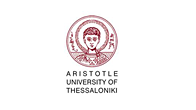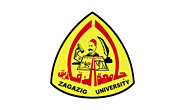In an article dated December 2017, FAO recognized that despite improvements in agricultural productivity, Egypt still faces major constraints on water and land use, which limit its domestic food production. The UN estimates that Egypt’s population will soar by 60 percent to over 150 million by 2050.
Productive land resources in Egypt are under multiple natural and human pressures and factors that are leading to soil degradation and desertification, as recognized three years ago by the ILHAM-EC project which is now coming at its end after having implemented its activities in the countries.
Funded by Erasmus + KA2, Capacity building action, on 7th October 2019 ILHAM-EC celebrated its final conference in Cairo through an event in which professors, teachers, students and business community had the opportunity to share views and set the path for project results sustainability.
In 2016, local authorities endorsed the Sustainable Development Strategy (Egypt Vision 2030) and implemented by the Ministry of Planning is constantly implementing it. However, FAO recognized last October, despite Egypt’s efforts and commitment to the 2030 Agenda, a number of challenges still required action.
The same can be said for ILHAM-EC project: despite all the efforts in implementing a new Master in Sustainable land management, a huge capacity building action for both Egyptian professors and teachers performed in Europe and the provision of equipment for Egyptian laboratories (laptops and other laboratories facilities) the real challenge for Egyptian universities is starting now.
Some data from scientific articles (have a look at A Typology-Based Approach for Assessing Qualities and Determinants of Adoption of Sustainable Water Use Technologies in Coping with Context Diversity: The Case of Mechanized Raised-Bed Technology in Egypt), can help us in better framing the problem: Water scarcity for agriculture in Egypt has been, and will continue to be, a profound problem. Average water availability per person has declined below the threshold value of 1000 m3/capita/year, and is estimated to fall to 500 m3/capita/year in 2025 if there is no significant improvement in management. Moreover, negative effects of climate change on agricultural production introduce further problems for water allocation to agriculture. Recent projection suggests that Egyptian agricultural production could decrease by 8–47% by 2060, with employment losses of up to 39%. Thus, the current and future challenge in Egypt is producing more food with less water resources. The benefits of each drop applied could be maximized by adopting appropriate and suitable irrigation scheduling and adapted irrigation practices.
This means that ILHAM-EC graduated students will have a crucial role in the country’s future being able to deal with one of the foremost important and urgent problems on Egypt. This means that the capacities that the University of Sassari (project coordinator) built in the Egyptian Universities will hopefully contribute in supporting the academic world in finding solutions for the benefit of the society at large, but this also means that more support is needed in the forthcoming future from donors and EU partners in order to upscale ILHAM-EC capacities.












